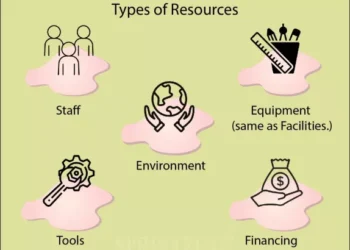In a world driven by energy consumption, optimizing efficiency is pivotal. Off-peak hours, when demand is lower, present a unique opportunity to save energy and costs.
Delve into a realm where off-peak hours become the cornerstone of cost-saving and eco-conscious practices. Unveiling a treasure trove of tactics, this guide offers a roadmap to harnessing off-peak hours’ potential.
From smart appliance utilization to discovering more ways to save electricity on Utility Bidder’s website, and finding ways to harness renewable energy sources like solar and wind power, each strategy is tailored to optimize energy consumption during the quieter hours.
Join us on a journey to revolutionize energy habits, transforming off-peak periods into opportunities for substantial savings and impactful environmental contributions across homes, businesses, and industries in the UK.
This guide also highlights how these strategies can be uniquely effective in different regions across the UK, from the sunny coasts of Cornwall to the windy highlands of Scotland.
What Are Off-Peak Hours?
Off-peak hours refer to periods when energy demand is relatively lower. Typically, these occur during late nights, early mornings, or weekends when industries and households use less electricity.
In the UK’s energy landscape, off-peak hours coincide with times when industries wind down, and households generally use less power, creating a lull in the overall energy consumption pattern. This decline in demand often corresponds with lower electricity rates offered by energy providers.
Economy 7 or Economy 10 tariffs, prevalent in the UK, highlight the significance of off-peak hours. These tariffs offer reduced rates during specific periods, encouraging consumers to shift energy-intensive tasks, such as running appliances or charging electric vehicles, to these off-peak times.
Understanding and leveraging off-peak hours isn’t just about identifying a quieter time frame. It’s about seizing an opportunity to save on electricity costs and contribute to a more sustainable environment by aligning consumption with times of lower energy demand.
Why Focus on Off-Peak Efficiency?
Focusing on off-peak efficiency is crucial for several compelling reasons:
- Cost Savings: Energy providers often offer reduced rates during off-peak hours. This presents a golden opportunity for consumers to capitalize on lower electricity costs. By strategically scheduling high-energy tasks—such as running appliances or charging electric vehicles—during these periods, households and businesses can significantly cut down on their electricity bills.
- Environmental Impact: Beyond monetary savings, prioritizing off-peak efficiency aligns with environmental sustainability. Lowering energy consumption during off-peak hours directly contributes to reducing the overall demand for electricity. In turn, this decreases reliance on non-renewable energy sources, aligning with the UK’s goals to curb carbon emissions and promote a greener future.
- Optimal Resource Utilization: Off-peak hours represent underutilized capacity within the energy grid. Leveraging these quieter periods helps balance energy supply and demand, maximizing the efficient use of resources. This not only benefits individual consumers but also supports the stability and sustainability of the broader energy infrastructure.
By focusing on off-peak efficiency, individuals, businesses, and industries in the UK can achieve tangible cost savings, contribute meaningfully to environmental conservation efforts, and actively participate in shaping a more sustainable energy future.
Strategies for Maximizing Off-Peak Efficiency
Navigating the unique landscape of energy consumption demands a tailored approach to maximize off-peak efficiency. Here, we unveil a suite of strategies aimed at harnessing the potential of quieter hours to save costs and bolster sustainability.
1. Smart Appliance Usage
Timed Operations: Utilizing smart appliances to schedule tasks during off-peak hours, especially with Economy 7 or Economy 10 tariffs, can yield substantial savings.
Power Settings: Adjusting the power settings of devices to run optimally during off-peak times aligns with the lower cost per unit of electricity.
2. Lighting Optimization
Switch to LEDs: The UK promotes the use of energy-efficient LED bulbs, especially during off-peak hours, as they consume less electricity and have longer lifespans.
Motion Sensors: Installing motion-activated lights in homes or businesses ensures energy is used only when needed, a practice encouraged during off-peak periods.
3. Heating and Cooling Management
Thermostat Adjustments: Setting thermostats to operate efficiently during off-peak hours coincides with lower energy demands, contributing to cost savings.You can also accomplish the same effect during the day and save on cooling costs by temporarily blacking out windows.
Insulation Upgrades: Enhancing insulation aids in retaining heat during off-peak times, reducing the load on heating systems.
4. Renewable Energy Utilization
Solar Power: The increasing focus on solar power aligns with off-peak hours during daylight, allowing homes and businesses to generate their electricity and potentially reduce grid reliance.
Wind Energy: Exploring wind turbine options for generating energy during off-peak times further promotes renewable energy sources.
5. Behavioural Changes
Unplugging Electronics: Emphasizing the importance of switching off or unplugging electronics not in use, particularly during off-peak hours, helps curb standby power consumption.
Temperature Management: Encouraging occupants to dress appropriately for the seasons minimizes reliance on heating or cooling systems, especially during off-peak periods with lower energy demands.
Implementing these strategies during off-peak hours not only leads to immediate cost savings but also aligns with the country’s sustainability goals, fostering a more energy-efficient and environmentally conscious society.
Regions and Cities Where Off-Peak Strategies are Super Effective
Solar Power Utilization in Cornwall:
In regions like Cornwall or the South East of England, where there are higher average sunshine hours, Cornwall solar energy efficiency can be especially effective. It is particularly noteworthy how these areas benefit more from solar panels during off-peak daylight hours.
Wind Energy in the Highlands of Scotland:
Coastal areas such as Scotland, particularly the Highlands and Islands, have significant wind resources. Wind energy can be harnessed more effectively in these regions, especially during off-peak hours when wind speeds can be higher.
Economy 7 and Economy 10 Tariffs in the Greater Area of London:
These tariffs can be more beneficial in areas with larger variations in peak and off-peak rates. For instance, urban areas like London, Birmingham, or Manchester, where energy demand fluctuates more noticeably, can see greater benefits from using these tariffs.
Heating and Cooling Management:
In colder regions like Northern England and Scotland, strategies for efficient heating during off-peak hours can lead to significant savings. Conversely, warmer regions, such as the South West, focus on cooling efficiency.
Behavioural Changes in Residential Areas:
Suburban areas, where individual households might have more control over their energy usage, can benefit significantly from behavioural changes.
Commercial Energy Efficiency:
Energy-saving strategies during off-peak hours can be crucial for large-scale industries and businesses in industrial hubs like Manchester, Leeds, or the Midlands.
Conclusion
Maximizing off-peak energy efficiency isn’t just about cost savings; it’s a proactive step towards a sustainable future. Implementing these strategies, whether through behavioural changes or technological upgrades, empowers individuals and businesses to contribute positively to energy conservation during off-peak hours.
There are several strategies available to help you achieve energy efficiency at home and at work. Discover additional tips by visiting https://www.redlasso.com/







